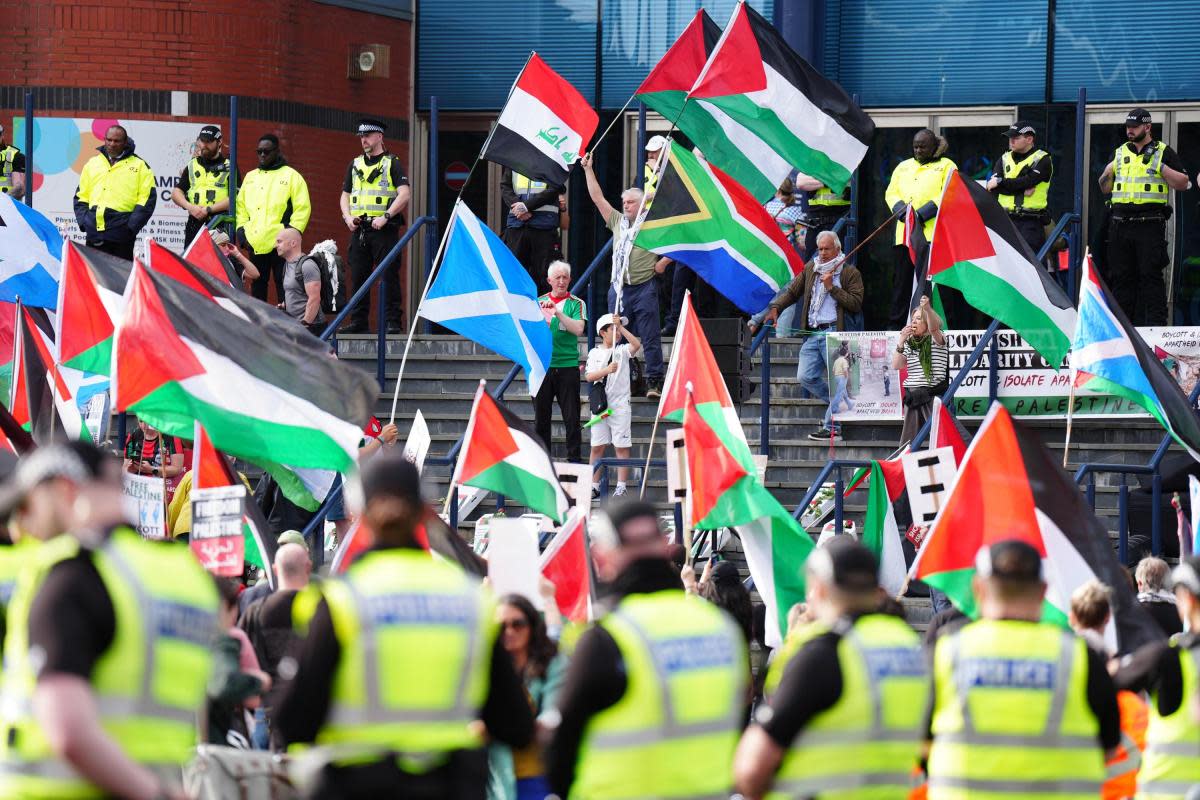Wounded Palestinians tell of horror after IDF soldiers 'throw them on jeep bonnet'

PALESTINIANS have said they were shot by Israeli soldiers then forced onto car bonnets and driven at speed along village roads following a military operation in the West Bank.
Two men have said they were subjected to the terrifying ordeal after an Israeli Defence Forces (IDF) operation in Jabariyat, on the outskirts of Jenin in the West Bank, last Saturday.
It comes after footage of 23-year-old Mujahid Abadi Balas clinging to the bonnet of what appears to be the same Israeli army jeep sparked international outrage, the BBC reports.
Samir Dabaya, 23, now hospitalised in Jenin, said he was shot in the back by Israeli forces during the raid, and lay face-down and bleeding for hours, before he was assessed by soldiers.
READ MORE: How Labour tried to gag The National with £30k legal threat ahead of General Election
He claimed that when the soldiers realised he was alive he was beaten with a gun and then picked up and thrown onto the bonnet of an army jeep.
Samir told the BBC: “They took off my [trousers]. I wanted to hold onto the car, but [one soldier] hit my face and told me not to. Then he started driving. I was waiting for death.”
The broadcaster said it was shown security camera footage which appeared to confirm his account but which did not have the date or time visible.
Another Palestinian man, Hesham Isleit, also told the BBC he was shot twice during the operation in Jabariyat and forced onto the same military jeep, marked with the number one.
He said that during the raid he was shot in the leg as he tried to run away.
Hesham said: “They ordered us to stand up, and undressed us, then they asked us to get onto the front of the jeep.”
He told how the car was so hot that it felt “like fire”.
READ MORE: John Swinney calls out BBC Scotland host over 'stigmatising' question
He added: “I was barefoot and undressed. I tried to put my hand on the jeep and I couldn’t, it was burning hot. I was telling them it was very hot, and they were forcing me to get on – telling me that if I didn’t want to die, I should do it.”
In response to the original video of Mujahid Abadi Balas’s treatment last week, the Israeli army said that he was tied to the jeep in “a violation of orders and procedures” and that his case would be investigated.
In a statement the IDF said: “The conduct of the forces in the video of the incident does not conform to the values of the IDF.”
Mujadid told the BBC: “Once they confirmed that I had nothing on me [no weapon], they came down from the jeep and started beating me on the face, the head, and the sites of my injuries.
READ MORE: Polling suggests a fight between Labour and Tories for second place here
“The soldiers picked me up by my wrists and ankles, and [swung me] right and left, before throwing me in the air.”
He says he fell to the ground, was picked up and swung again, before being thrown onto the jeep, and driven to a nearby house.
The army said it was in Jabariyat last weekend to arrest wanted suspects, and that during the operation “terrorists opened fire at troops, who responded with live fire”.
Hesham said the house that he and Mujahid were in that day belonged to Majd al-Azmi, a neighbour and friend, who was arrested during the operation and remains in Israeli custody.
All three men say they were unarmed, and all were quickly released by the army after identity checks.
Shai Parnes, a spokesperson for the Israeli human rights organisation Btselem said violence against Palestinians in the West Bank by Israeli soldiers and settlers has reached record levels since the October 7 Hamas attacks.
He said: “It’s more radicalised, it’s more brutalised, it’s more extreme.
“Since October 7, more than 500 Palestinians have been killed – more than 100 of them minors – and every day there are invasions of Palestinian cities.”

 Yahoo News
Yahoo News 

